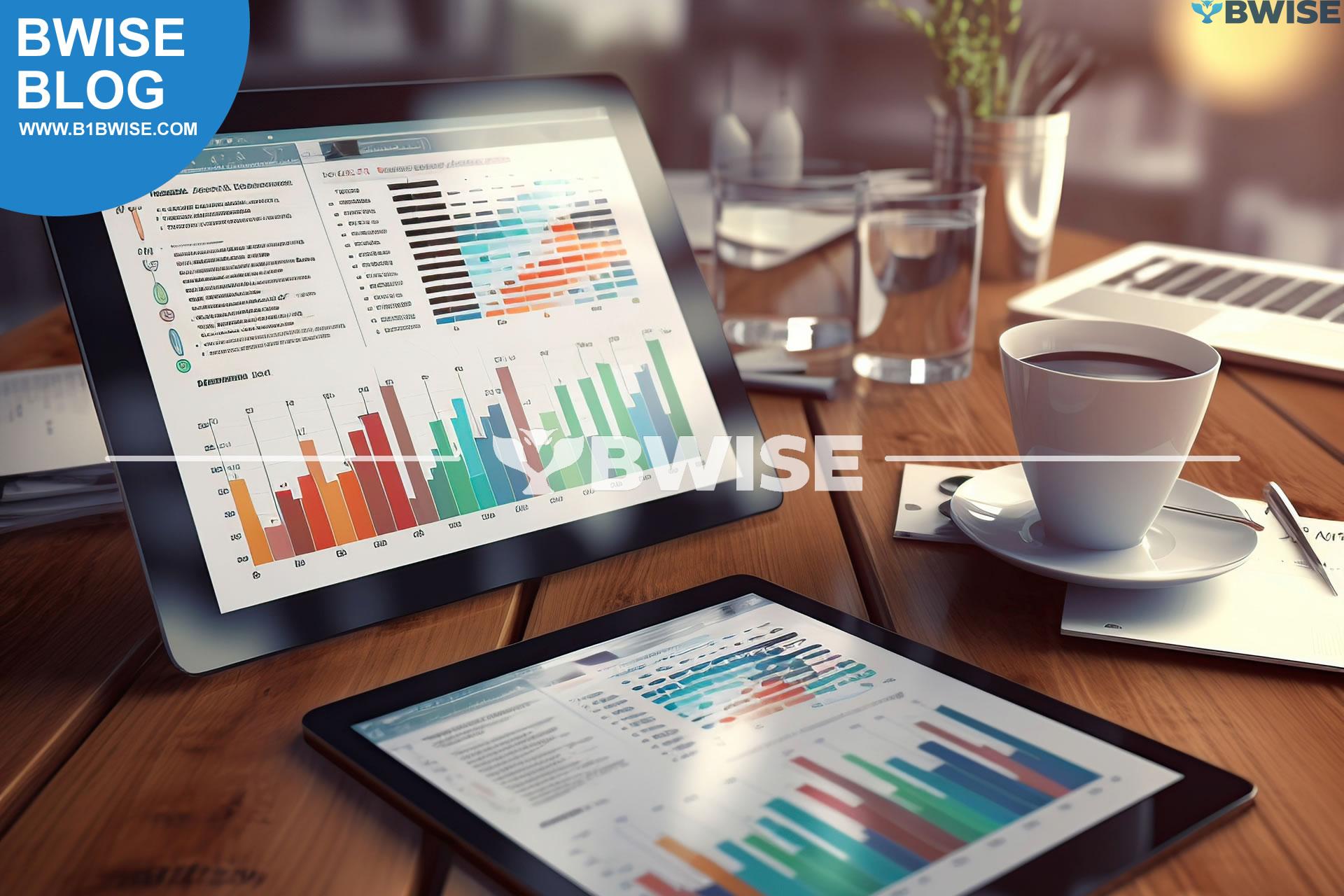Financial chaos is a thing of the past. Today’s businesses demand a robust system to manage their financial operations efficiently and accurately. ERP accounting software answers this challenge, offering a comprehensive solution to streamline financial processes and providing invaluable insights.
Understanding ERP Accounting Software
ERP, which stands for Enterprise Resource Planning, is a comprehensive software system designed to manage and integrate various business functions. ERP accounting software is a specialized module within this system that focuses on financial operations. Unifying financial data from different departments provides a holistic view of a company’s financial health.

Key Benefits of ERP Software
- Real-Time Financial Insights: With ERP accounting software, businesses can access up-to-date financial information at their fingertips. This real-time visibility empowers decision-makers to make informed choices based on accurate data.
- Improved Accuracy and Efficiency: Manual data entry and calculations are prone to errors. ERP accounting software automates these processes, reducing the risk of human error and enhancing overall efficiency.
- Enhanced Collaboration: ERP accounting software facilitates seamless collaboration between finance and other departments by centralizing financial data. This enhancement improves communication and accelerates decision-making.
- Streamlined Financial Processes: ERP accounting software automates and streamlines end-to-end financial processes from accounts payable and receivable to general ledger and financial reporting.
- Compliance and Audit Readiness: It is crucial to maintain compliance with financial regulations. ERP accounting software helps businesses adhere to industry standards and simplifies the audit process.
- Scalability: As businesses grow, their financial needs evolve. Acounting software is designed to scale with the organization, accommodating increasing transaction volumes and complexity.
- Cost Reduction: ERP accounting software can significantly reduce businesses’ costs by automating tasks and reducing manual effort.
Core Features of Accounting Software
- General Ledger: Manage chart of accounts, journal entries, and account reconciliations.
- Accounts Payable: Process invoices, track payments, and manage vendor relationships.
- Accounts Receivable: Create and manage customer invoices, track payments, and handle collections.
- Fixed Asset Management: Track asset depreciation, maintenance, and disposal.
- Cash Management: Monitor cash flow, manage bank accounts, and reconcile transactions.
- Financial Reporting: Generate comprehensive financial reports, including balance sheets, income statements, and cash flow statements.
- Tax Compliance: Calculate and file taxes accurately and efficiently.
Selecting the Right Accounting Software
Choosing the appropriate accounting software is crucial for business success. Consider the following factors when making a decision:
- Business Size and Industry: Evaluate the software’s ability to meet the specific needs of your industry and business size.
- Scalability: Ensure the software can accommodate future growth and expansion.
- Integration Capabilities: Look for seamless integration with other business systems, such as CRM and HR.
- User-Friendliness: A user-friendly interface enhances adoption and productivity.
- Cost: Assess the total cost of ownership, including licensing, implementation, and ongoing maintenance.
Implementing Accounting Software
Implementing ERP accounting software requires careful planning and execution. Here are some critical steps involved:
- Needs Assessment: Identify your organization’s specific requirements and goals.
- Software Selection: Evaluate different accounting software options based on your needs.
- Data Migration: Transfer existing financial data into the new system accurately.
- User Training: Provide comprehensive training to employees to ensure effective utilization.
- Go-Live: Launch the software and monitor performance closely.
By investing in an accounting software, businesses can significantly improve financial management, efficiency, and decision-making. This powerful tool empowers organizations to focus on strategic initiatives while ensuring economic stability and growth.
Overcoming Challenges in Accounting Software Implementation
While ERP accounting software offers numerous benefits, implementing it successfully requires careful planning and execution. Common challenges include:
- Data Migration: Transferring data from legacy systems to the new ERP can be complex and time-consuming.
- User Adoption: Ensuring employees embrace the new system and utilize its features effectively can be challenging.
- Customization: Tailoring the software to specific business needs may require additional development or configuration.
- Cost: The initial investment in accounting software can be significant, and ongoing maintenance costs should be considered.
To mitigate these challenges, businesses should involve key stakeholders in the implementation process, provide comprehensive training, and choose an ERP vendor with a proven track record of successful implementations.
The Future of ERP Accounting Software
The evolution of technology continues to shape the landscape of ERP accounting software. Emerging trends include:
- Cloud-Based ERP: Offering flexibility, scalability, and reduced IT infrastructure costs.
- Artificial Intelligence and Machine Learning: Automating tasks, improving accuracy, and providing predictive analytics.
- Mobile Accessibility: Enabling real-time access to financial information from anywhere.
- Integration with Financial Planning and Analysis (FP&A): Enhancing strategic decision-making and performance management.
As accounting software advances, businesses can expect even more significant benefits in terms of efficiency, accuracy, and financial insights.
Conclusion
In an era of digital transformation, ERP accounting software has become an indispensable asset for businesses of all sizes. By harnessing this technology’s capabilities, organizations can streamline financial operations, enhance accuracy, and gain valuable insights to drive success.
